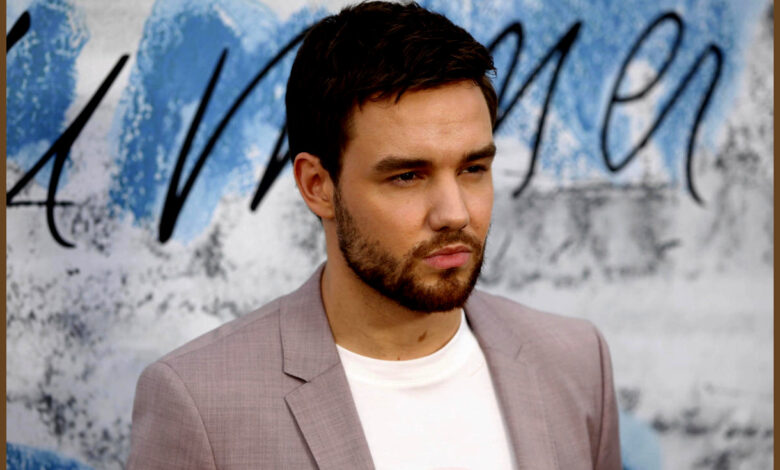Exploring the Emotional Impact of Celebrity Deaths on Fans

Grieving the loss of a celebrity—a figure we may never have personally met—can feel surprisingly intimate. This phenomenon isn’t just about friends and family experiencing sorrow in isolation; it’s a collective mourning that sweeps across communities, intertwining our emotional landscapes with those of public figures who have left an indelible mark on our lives.
Why Do Celebrity Deaths Feel So Personal?
What’s the underlying reason for this phenomenon? It’s beautifully simplistic yet profound: our connections to celebrities are indeed personal, irrespective of the belief that they lack authenticity.
As psychiatrist Dr. Tracey Marks explained to HuffPost after the tragic passing of Kobe Bryant, “The ability to foster attachment… stems from any form of interaction, even if that interaction is asymmetrical. You see them, you hear them, and if there’s anything in their narrative that resonates with you, it conjures the sensation of affinity.”
Consider the loyal fan engrossed in the latest episodes of their favorite series, or the ardent supporter cheering from their couch during a sports match. The reality is that these public figures may actually occupy more space in our homes, both physically through screens and virtually through social media, than some of our closest associates.
“You’re not merely watching them on television—you’re also engaging with their thoughts via Twitter and witnessing their moments on Instagram,” she said. “Each of these brief encounters compounds the feeling of closeness.”
As time unfolds, this sense of connection intensifies, especially when celebrities maintain a long-standing presence in our lives.
“Even without personal acquaintance, their essence remains woven into our daily experiences,” noted Rachel O’Neill, PhD, a clinical counselor, while conversing with Teen Vogue. “For instance, their presence in a beloved TV show from our formative years imbues their loss with a certain nostalgia that feels like a fracture in our personal history.”
The sorrow tied to these beloved figures is exacerbated by the omnipresence of social media, facilitating a very public mourning process embraced by fans, families, and news circles alike. Samita Nandy, director of the Centre for Media and Celebrity Studies, articulated this evocative paradox to Yahoo Life, stating, “The emotional intensity surrounding such events undoubtedly reaches peaks that many have never encountered before.”
Leaving a Legacy
The artistic endeavors and contributions of a celebrity during their lifetime intricately influence how they are cherished and ultimately memorialized after their departure.
This body of work serves as a bridge, allowing fans to revisit beloved films, series, or songs, and thus keep the connection alive. “While they may no longer walk among us, their art continues to resonate, serving as a comforting balm for our grief,” Marks remarked.
Moreover, a celebrity’s identity can often transcend their individual fame, connecting them to broader movements or causes, rendering their loss even more poignant.
Take for instance the tragic passing of actor Angus Cloud; for many Gen Z fans, his death represents a loss of representation and relatable identity, as Colette Sachs from Manhattan Wellness shares. Similarly, the late Payne, who rose to fame as a teenager on X-Factor and became integral to One Direction, also held a special place in the hearts of many.
Matthew Perry’s candid discussions surrounding his battles with addiction cement his connection to millions of Americans grappling with similar struggles, amplifying the sadness surrounding his demise. “Such figures often symbolize an era, an icon, or a movement,” reflected Marks. “Their existence prompts us to reminisce about the positive impact they’ve imparted upon our lives.”
How It Impacts Daily Life
In a world where celebrities often seem untouchable—a dazzling mirage of invincibility—the stark reality of their mortality can be jarring. Yet, it also serves as a poignant reminder of our own fragility.
“These moments of loss remind us of our inherent vulnerability,” Marks said, emphasizing the shared human experience that connects us all.
For many, a public personality’s death may herald their first encounter with the concept of loss.
“Society hasn’t equipped us adequately to process grief or cope with death, not just in regards to celebrities but in life overall,” Nandy remarked. “The emotional backdrop of one’s prior experiences, like losing a grandparent, will shape how they cope.”
Dr. Neeraj Gandotra, chief medical officer at Delphi Behavioral Health Group, suggests that discussing the demise of notable figures can provide a valuable opportunity to engage in deeper, meaningful conversations about mortality with our friends and family. “Utilize these feelings of loss to foster scholarly dialogues about what death entails. This kind of discourse cultivates a healthy awareness of life’s transience and encourages introspection, possibly inspiring changes that better one’s trajectory.”
If you decide to explore further or make a purchase through the links provided herein, know that we stand to earn a commission, contributing to the ongoing discourse.




